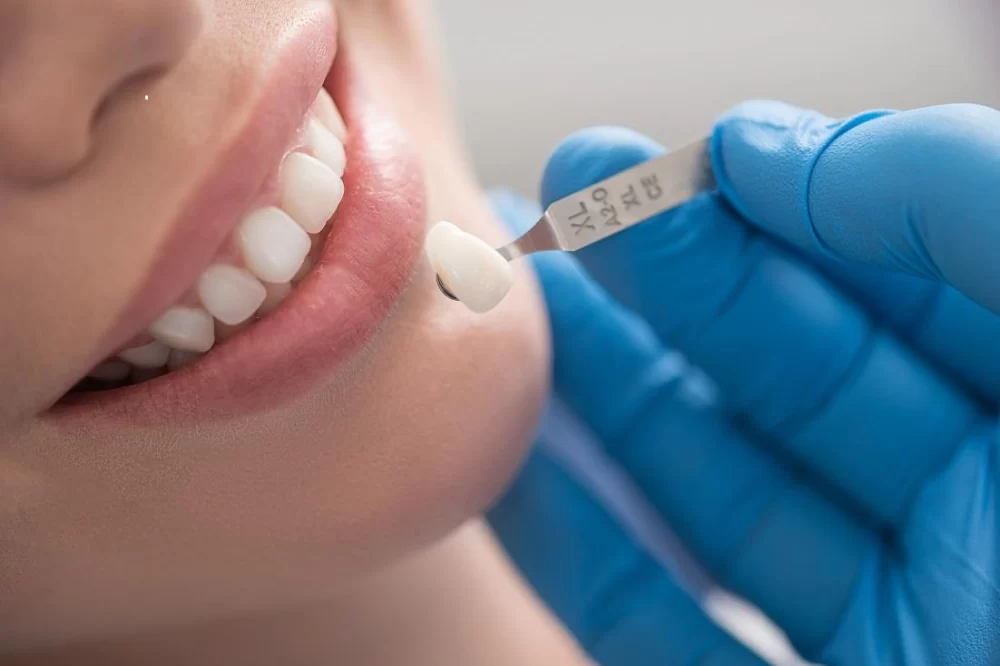
How to Care for Your Dental Crowns and Fillings: Essential Tips for Longevity
Dental crowns and fillings are common procedures that restore damaged teeth and improve the overall health of your smile. After getting a dental crown or filling, you may wonder how to properly care for these dental treatments. Just like natural teeth, your crowns and fillings need attention to ensure they last as long as possible and continue to function properly. Let’s dive into the key practices to keep your dental work in top shape.
1. Regular Brushing and Flossing: Your First Line of Defense
The most fundamental aspect of caring for dental crowns and fillings is maintaining good oral hygiene. Brushing your teeth at least twice a day and flossing regularly is crucial for the health of both your natural teeth and dental work. While crowns and fillings are durable, they are not immune to plaque buildup, which can lead to decay around the edges.
Use a soft-bristled toothbrush to avoid damaging your crowns. Electric toothbrushes are a great option for more effective cleaning, but manual brushing is perfectly fine as long as you are thorough. It’s also important to use fluoride toothpaste, as fluoride helps to strengthen the enamel around your crowns and fillings. Make sure to floss between the crowns and fillings to remove any food particles that might get stuck.
2. Avoid Hard and Sticky Foods
While dental crowns and fillings are designed to be strong, they can still be damaged by hard or sticky foods. If you bite into something hard, like ice or hard candy, you risk cracking or loosening the crown or filling. Sticky foods, such as caramel or taffy, can pull at the edges of the restoration, potentially dislodging it or causing discomfort.
If you have a crown, it’s advisable to avoid biting directly into hard objects, such as nuts or popcorn kernels, to prevent putting too much pressure on the restoration. Likewise, with fillings, chewing on tough foods can wear them down over time. Stick to softer foods and use your back teeth to chew anything tougher to avoid unnecessary stress on your dental work.
3. Regular Dental Checkups: Stay Ahead of Any Issues
Even if you’re taking excellent care of your crowns and fillings at home, it’s still important to visit your dentist regularly. Routine checkups allow your dentist to monitor the condition of your dental work and address any potential issues before they become serious. If you notice any changes, such as sensitivity or discomfort around your crowns or fillings, be sure to schedule an appointment as soon as possible.
During these visits, your dentist will also clean around your crowns and fillings, removing any plaque buildup that may have occurred. They may also polish your dental work, ensuring that it remains smooth and free of any stains or debris.
4. Be Mindful of Teeth Grinding
If you grind your teeth, either during the day or at night, it can significantly impact the lifespan of your dental crowns and fillings. Teeth grinding, or bruxism, places excessive pressure on your teeth, including any restorations, potentially causing them to crack or wear down.
If you suspect you’re grinding your teeth, especially at night, it’s essential to talk to your dentist. They may recommend wearing a night guard to protect your dental work and prevent further damage. Using a night guard can save you from costly repairs or replacements down the line.
5. Manage Your Diet: Avoid Staining and Decay
Just like your natural teeth, the materials used for crowns and fillings can be susceptible to staining over time. Certain foods and drinks, such as coffee, tea, red wine, and tobacco products, can cause discoloration, making your crown or filling less attractive. While porcelain crowns are relatively stain-resistant, it’s still important to be cautious with staining agents.
Additionally, sugary foods and drinks can lead to tooth decay, even around your dental work. Bacteria thrive on sugar, producing acids that attack the enamel and the material around fillings and crowns. Limiting your intake of sugary foods and drinks will help maintain your smile’s overall health and prevent future dental issues.
6. Address Problems Promptly
If you experience any discomfort, pain, or signs of wear around your dental crowns or fillings, don’t wait for the problem to worsen. Contact your dentist as soon as possible. Sometimes, a crown or filling may become loose or cracked due to factors like biting hard foods, grinding, or natural wear and tear.
Delaying a visit to your dentist can lead to more serious problems, such as tooth decay under a damaged crown or filling, which could require additional treatments or even a tooth extraction. Always prioritize your dental health and seek help if you notice any unusual symptoms.
7. Protect Your Crowns and Fillings During Sports
If you’re active in sports or physical activities, consider wearing a mouthguard to protect your dental crowns and fillings. Accidental impacts to the face can lead to chipped or broken crowns or fillings, which can be painful and costly to repair.
A mouthguard is especially important for contact sports, where the risk of dental injury is higher. Even non-contact sports can present a risk, so it’s a small investment that can save you from more severe dental issues.
8. Know When to Replace Old Fillings
Fillings are designed to last for many years, but over time, they may start to wear down or become loose. If you notice that a filling feels rough, or if food frequently gets stuck in the area, it may be time for a replacement. Fillings made from silver amalgam or composite materials typically last between 10 to 15 years, but they may need to be replaced sooner if they are subjected to excessive stress or wear.
Your dentist will examine your fillings and crowns during regular checkups and inform you if they need to be replaced. Don’t hesitate to ask about the condition of your fillings, and ensure that they are still in good working order.
By following these simple yet effective care tips, you can extend the life of your dental crowns and fillings, keep your smile looking its best, and avoid unnecessary dental procedures. Remember, your dental health is a lifelong commitment, and taking good care of your restorations will ensure they continue to serve you for many years to come.







 Dr. Christian E. Miller, DDS5.0 (5 review)
Dr. Christian E. Miller, DDS5.0 (5 review) NorthShore Health Centers4.0 (153 review)
NorthShore Health Centers4.0 (153 review) Sumner Smiles Dentistry4.0 (79 review)
Sumner Smiles Dentistry4.0 (79 review) Johnson Ebenezer DDS4.0 (12 review)
Johnson Ebenezer DDS4.0 (12 review) Daniel Jeffrey Cohen, DDS5.0 (117 review)
Daniel Jeffrey Cohen, DDS5.0 (117 review) Brace Busters3.0 (2 review)
Brace Busters3.0 (2 review) The Importance of Oral Health Education During Pregnancy for a Healthy Pregnancy
The Importance of Oral Health Education During Pregnancy for a Healthy Pregnancy Best Tips for Brushing Your Teeth Properly for Healthy Gums: Essential Techniques for Oral Health
Best Tips for Brushing Your Teeth Properly for Healthy Gums: Essential Techniques for Oral Health Why Skipping Dental Checkups Can Lead to Bigger Oral Health Problems
Why Skipping Dental Checkups Can Lead to Bigger Oral Health Problems Advantages of Porcelain Dental Restorations
Advantages of Porcelain Dental Restorations How Can Diabetes Cause Tooth and Gum Problems? Preventing and Managing Oral Health Issues
How Can Diabetes Cause Tooth and Gum Problems? Preventing and Managing Oral Health Issues Healthy Habits for Promoting Good Oral Health and Hygiene: Tips for a Healthy Smile
Healthy Habits for Promoting Good Oral Health and Hygiene: Tips for a Healthy Smile